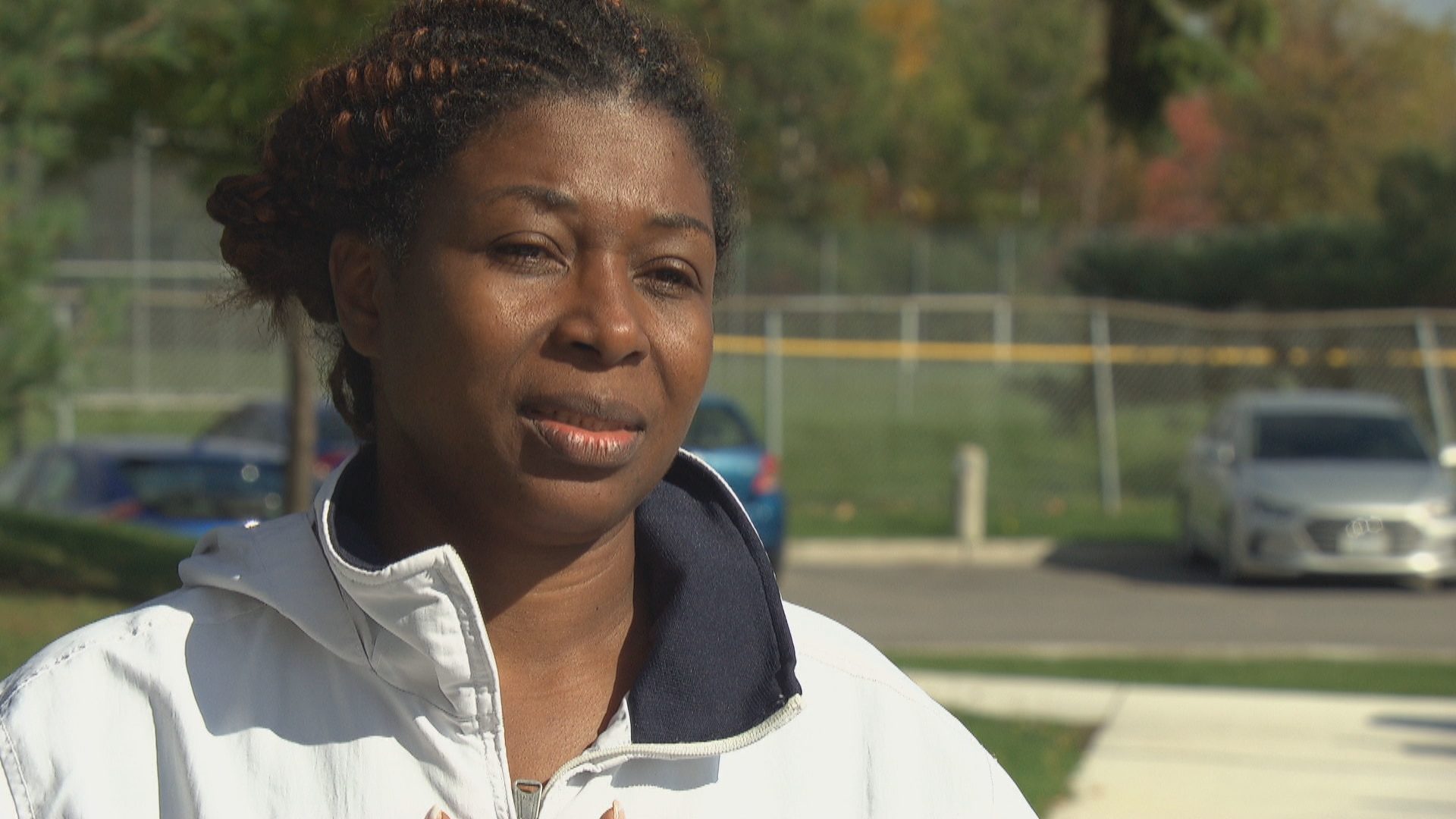
That’s all they had to do, come to the door and knock, but they came like terrorists.
Ben Poirier, Anthony Aust’s stepfather
On Wednesday, Oct. 7, twelve Ottawa police officers burst into the apartment where 23 year-old Anthony Aust, his girlfriend, his 94 year-old grandmother, 68 year-old stepfather, 12 year-old brother and 13 year-old sister were present. Without warning, the officers used a battering ram on the unlocked door, exploded flash grenades and rushed into the apartment with assault rifles in hand. The result of all this was Anthony falling 12 storeys from the apartment window to his death.
Dramatic video footage of the police’s violent entrance captured by the family’s camera was publicized by Anthony’s brother Raymond Aust, 20. Raymond saw the footage from his family’s home security video on his phone while studying at Queen’s University in Kingston. He downloaded the video and sent it out to reporters in order to force the mainstream media to report on the aggressive nature of the raid.
Anthony was on bail at the time of this death, having been charged in January with gun and drug offences after a traffic stop. He was charged along with two others, but was awaiting trial on those charges. He wore an ankle monitor and police were aware of his location.
“If they addressed the situation more calmly, someone in my family would have woken him up and resolved the situation,” said Raymond, who was not present in the apartment at the time of his brother’s death. “Instead they come in full force, guns out, expecting the situation wouldn’t go awry. He was petrified of police and he was in a rush to think.”
No-knock warrants instituted from the top
The family and the public have questioned the aggressive nature of the raid. According to Jeff Kilcollins, a retired Ottawa police officer who spent 20 years on the SWAT team, no-knock warrants, also known as “dynamic entries” are “bread and butter” for the police.
“We conduct hundreds of them a year in Ontario,” Kilcollins said. “There are demands from the court system, the judicial system. They like it much better when the accused is in possession of the evidence. Narcotics are generally considered disposable evidence, much like child pornography.”
In February, in response to a no-knock warrant used against a woman, a Superior Court judge found that no-knock warrants, like the one carried out at the Aust residence, reflect a “casual disregard” for the Charter of Rights and Freedoms and urged police to use them in vital cases only.
However, the prevailing opinion still belongs to the highest court in the country. In 2010, the Supreme Court of Canada ruled that no-knock warrants could be used in urgent cases.
What defines an “urgent” case is up to the discretion of the police forces themselves. And clearly, one judge’s vaguely expressed opinion did not stop the violent actions of the police.This violence is systemic and is rubber stamped at the highest level of the judicial system.
Racism and brutality is enabled in the police force

Nhora Aust, Anthony’s mother who works as a driver for special education students, told media that she isn’t confident the Special Investigations Unit (SIU) will lay charges. She is justified in this thinking. The SIU, made up of retired police officers and staff friendly to police forces, only charges officers at a rate of five per cent. Of those that are charged, it is extremely rare for any officer to receive a conviction that is anywhere near commensurate to their crimes.
In 2016, Ottawa police killed Abdirahman Abdi, 37, a black man who worked at a car wash and who was experiencing mental health issues. It was a rare case where a camera captured the incident, showing police officers beating Abdi while he was held to the ground. The officer involved was charged, but only with manslaughter and aggravated assault, and the case has not yet resulted in a conviction. An average citizen would surely have been charged with murder in this situation.
In May of this year, Regis Korchinski-Paquet, a 29-year-old Indigenous Black woman, also fell to her death after police entered her apartment. In August, the SIU cleared all officers of any wrongdoing. As a result, Korchinski-Paquet’s family are conducting their own private investigation
In addition to actions resulting in death, the Police Services Act also protects more general violent behaviour of police officers. In 2016 Nermin Mesic, an Ottawa police officer and landlord, threatened to kill his former tenant, sell the man’s child to pay his rent, make his wife “do something” for money and “spill his blood”. Mesic admitted that he had forced the tenant into his car so that he could drive around harassing him in the passenger seat. The tenant captured an audio recording of the interaction and submitted it to police. Additionally, in 2009, Mesic was caught slapping, kicking and physically abusing a youth during questioning.
In 2019 Mesic pleaded guilty to criminal charges, but was given an “absolute discharge”—that is, he suffered no legal repercussions whatsoever, not even a criminal record. As for the Ottawa police department’s internal investigation, on Aug. 31 of this year, retired police chief Terence Kelly found Mesic only created an “embarrassment” after pleading guilty to “discreditable conduct”. The most serious consequence that Mesic faced? Being demoted from “first class constable to a second class constable for a period of 12 months” while receiving paid therapy and counselling.
Anthony Aust and countless other working class youth are not treated with the same leniency. Like many youth, Anthony was pushed into poverty by an unjust system and fell into a cycle of crime. Despite this he still took care of his family while he struggled to escape his circumstances.
“He obviously had to go through a lot but he was the most generous person in my family,” Raymond Aust said of his brother. “He always gave to my family, my siblings. He always made sure we were all protected. He was a good brother, a good son and a great friend.”
Like the unnamed youth who was abused by Mesic and found no justice, Anthony was traumatized to death and history tells us there will be no justice under this system.
“Even if my brother had his shortcomings and problems, no person should go out like this,” Raymond said in response to questions about his brother’s charges. “Once again, the police system has shown that they do not work for the betterment of society.”
To abolish police, abolish capitalism

In response to calls to defund the Ottawa Police Service over the past few months, government officials laughed off the demand. They maintained the current police budget, which is already five times larger than the public health budget in the city. This response teaches us that not only police departments, but government officials cannot be trusted to deal with the issue of violent and racist police. The truth is that the police are too fundamental to upholding the capitalist order for governments to turn on them.
Meanwhile, Ottawa and Canada’s police forces overwhelmingly target racialized, working class and poor communities. These communities are ravaged by the inequality, discrimination and exploitation inherent in capitalism. Black, white and workers of all colours have a common enemy: the bosses, capitalists who are driving down wages and driving up the cost of living while sitting on more than $1 trillion dollars of dead, uninvested money in Canada alone. While they sit comfortably, their state forces, including the police, bring suffering to our communities.
If Anthony was not a black man, or from a poor working class background, would the officers have treated him and his family with the same disregard and cruelty? How many mansions have had their doors kicked in and how many rich people fear the police as much as the workers and poor? How many corporations have to worry about the police coming after them for wage theft, endangerment of workers, or tax fraud? Conservative and Liberal governments not only allow them to keep money in tax havens, but have been found to collude with them. This is wealth that could be used in poorer communities to create better futures for the youth.
The labour movement needs to stand up against the violent injustice committed by the state. One life is too many. The leaders of our working class organizations need to act now. The Ontario Federation of Labour has said nothing about Anthony Aust’s death. The federal NDP and the Canadian Labour Congress have only made statements in response to police killings in the past and have not meaningfully involved themselves in the Black Lives Matter movement. Youth and working class people have made their intention to change society clear in the past several months, as the demands of the movement against police brutality have extended beyond reforms to calls to abolish the police itself. However, this will not be possible without abolishing capitalism. It is time for our labour leaders to use their massive power and resources to organize towards a coordinated fight against capitalism—and to boldly name capitalism as the root of the problem.
We must demand that the wealth currently sitting idle be used to provide affordable housing for all, lower the cost of living, invest in healthcare and education, and find solutions for working class youth. Instead of being terrorized by unaccountable police forces, communities themselves could democratically decide how best to meet their needs for self-defence and security. The labour movement desperately needs to identify capitalism as the root of our problems and wage a fight against this system to fundamentally change the conditions that produce police brutality and oppression.
Anthony Aust was a victim of this racist capitalist system, like many other working class youth who are pressured into lives which can only be described as a nightmare. Anthony had no chance to find a better life. The state had already judged him when police entered his apartment.
He was terrified of his peers, terrified of the police and terrified of jail. That was my son. He didn’t have time to live. He didn’t have time to know life. He was a kid.
Nhora Aust

